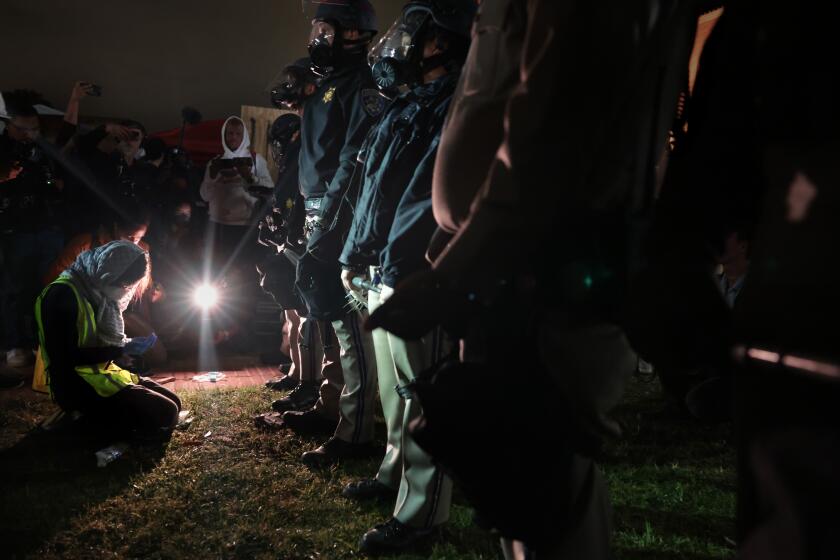We knew all Bruins looked alike!
For anyone ever accused of thinking that members of another racial or ethnic group “all look alike,” psychologists are here to offer a little exculpatory comfort. We’re all lousy, it turns out, at distinguishing one individual from another when both are from a different group than oneself. But it’s not always a race thing.
New research from the University of Miami suggests that as we move through our days, we are constantly defining people with whom we interact as “one of us” or “one of them.” We examine members of “our” group more closely and remember them better; we don’t spend as much mental energy checking out “them” -- and thus, don’t recognize distinctions among “them” quite as readily.
Race is one basis for such “us” and “them” judgments. But so are class, hobbies and even, apparently, university affiliations.
To come to this conclusion, the researchers put a group of University of Miami undergraduates through the “us” and “them” paces with a little twist. Subjects were shown a series of pictures of young people on a computer screen, and told that half of them were fellow UMiami students and the other half, students at the school’s athletic arch-rival, Marshall University. All were white.
In fact, none of the young people pictured attended either university. But when the subjects were asked to review the pictures, the individuals they remembered best were -- you guessed it -- those they had been told were fellow University of Miami students.
The Marshall University-ites? They all looked alike.
Feel better now? Well, not so fast. “In-group” identification may be a natural way for each of us to enhance our sense of security and form bonds of trust. But that doesn’t mean it’s benign, says Ohio State University psychologist Marilynn Brewer, who was honored Aug. 18 at the American Psychological Association’s annual meeting in San Francisco. Her reminder: “In-group bias is the basis for discrimination, the favoring of people in your group over those in another.”
-- Melissa Healy



